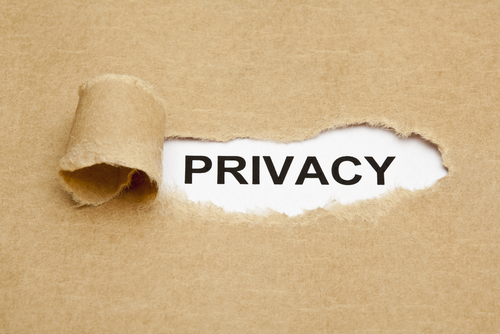Although employers generally possess a significant degree of latitude with regard to maintaining the integrity of company products, monitoring productivity, and ensuring a safe worksite, employers must balance such interests with the interests of their employees to maintain a degree of privacy.
 |
Only a Reasonable Expectation
It is important to remember that employees have only a reasonable expectation of privacy. Employers can lower the threshold of what is considered reasonable by developing a clear policy addressing workplace privacy issues and communicating the policy to their employees.
Private Employees Enjoy Relatively Little Freedom
Several states have enacted statutory or constitutional provisions guaranteeing their citizens the right to privacy from certain intrusions. In the absence of a state constitutional provision or existing law, however, private employees enjoy relatively little freedom from workplace intrusion. Therefore, private employees must look to common, or judge-made, law to find privacy protections.
Four Common-Law Privacy Claims
There are essentially four common-law privacy claims that are available to private employees. These are:
- Intrusion into an individual’s private solitude or seclusion. An employee may allege this form of privacy invasion when an employer unreasonably searches (e.g., a locker or desk drawer) or conducts surveillance in areas in which an employee has a legitimate expectation of privacy (e.g., dressing rooms). An employer’s improper questioning of an employee (e.g., sexual habits or orientation) may also give rise to this type of claim.
- Public disclosure of private facts. An employee may claim this form of privacy invasion when an employer publicly discloses private and, arguably, embarrassing facts about an employee to a wide audience without his or her permission.
- Portraying an individual in a false light. Under this theory, if an employer attributes a false or offensive conduct or characteristic to an employee that is not true (e.g., criminal activity), the employee may claim invasion of privacy.
- Use of an individual’s name or likeness. When an employer uses an employee’s photograph or likeness, or attributes specific statements to an employee without his or her permission, an individual may have a valid misappropriation claim (e.g., the employer publishes an employee’s photograph or likeness on company brochures without first obtaining the employee’s consent).
BLR’s SmartPolicies gives you 350 HR policies, prewritten for you, ready to customize or use as is. Click Here
Constitutional Guarantees
Public employees. Public employees are also protected by the U.S. Constitution. The U.S. Supreme Court has held that there is a federal constitutional right to personal privacy. Thus, public employers must be very careful to avoid practices that infringe upon their employees’ reasonable expectations of privacy as guaranteed by the Constitution.
11 Common Workplace Privacy Issues
In the employment setting, there are unfortunately a number of areas in which an employer’s practices might ultimately violate an employee’s privacy rights. Although the following summary outlines the more important existing federal regulations and general rules that may restrict and affect employer activities, remember to check state laws and constitutions.
1. Physical Searches
An employer’s search of an employee’s person or private belongings is perhaps the most intrusive form of employer inquiry. However, a physical search may be warranted and lawful under certain circumstances. For example, if a jewelry store videotape shows that an employee is stuffing jewelry in his or her pockets without paying for it, the employer may be justified in conducting a limited physical search of the employee. (But remember that a public employer’s right to conduct searches is limited by the Fourth Amendment’s prohibition on unreasonable search and seizure.)
2. Video Surveillance
An employer may have a legitimate business interest in videotaping its employees; however, to avoid running afoul of an employee’s privacy rights, employers should only videotape in open or public areas in which there is a diminished or no expectation of privacy (e.g., shop floor), and the employer should give its employees notice that they are being videotaped.
Don’t struggle with creating compliant HR policies! We’ve already written them for you, and at less than $1 each. Click Here.
3. Background and Credit Checks
The federal Fair Credit Reporting Act (FCRA) requires employers to obtain applicants’ consent when a third party conducts a background investigation. Some states also have their own background check laws.
4. Internet and E-Mail
The Electronic Communications Privacy Act of 1986 (ECPA) prohibits the unlawful and intentional interception of any wire, oral, or electronic communication (18 USC 2510 et seq.,18 USC 2701 et seq.). Title II of ECPA, the Stored Communications Act (SCA), also prohibits access to such information while in electronic storage.
There are three broad statutory exceptions that might prove useful to employers. The provider exception, the business-use exception, and the prior-consent exception.
In tomorrow’s Advisor, the rest of the issues, plus an introduction to a comprehensive collection of 350 prewritten policies on CD—SmartPolicies.

What should I do if I was injured on the job and co-workers viewed the video of the very private moment? (I fell and ripped my pants my underwear was showing) only the GM and above should be viewing the video not co-workers.
An employer insists that the employee and her spouse join their wellness program. Failure to do so results in a 50% increase in health insurance. The program includes having to wear a step re ording device, blood tests, completing online reports (unpaid) and taking calls from supervisors in off duty time to both parties. Is this a 4th amendment issue?
what should I do if a manager has asked me to unlock my mobile so he can read through a private group chat and others may be in trouble
can an employer disclose to other employees than an employee was suspended